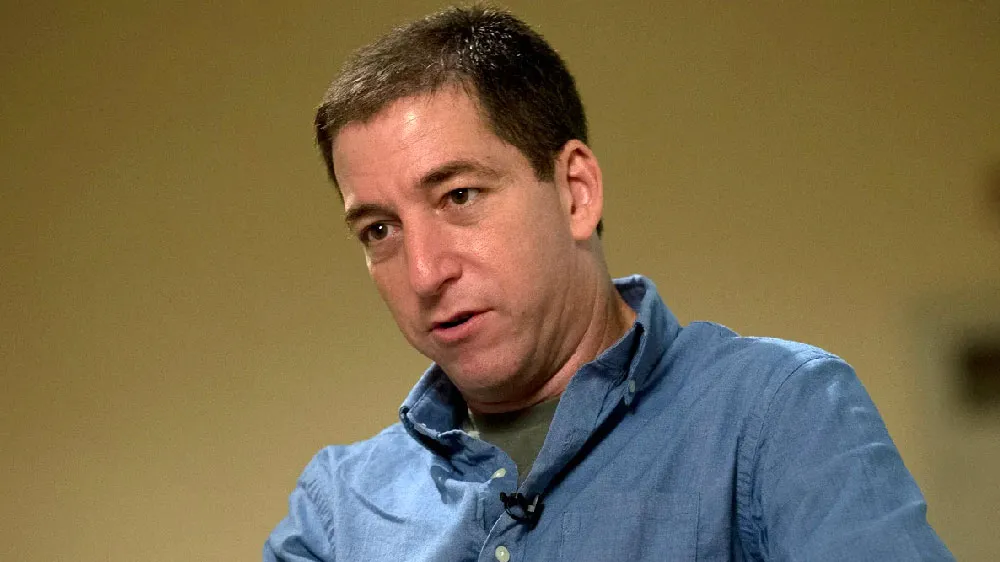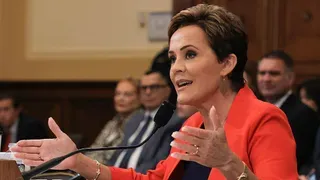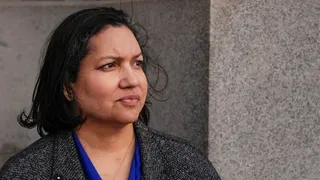October 26, 2012
Native Women Face Patchwork of Policies for Plan B
Jason St. Amand READ TIME: 4 MIN.
FLAGSTAFF, Ariz. - Months after the federal Indian Health Service said it was finalizing a policy that would make emergency contraception more accessible to American Indian women, advocates say they're still waiting. And in the meantime, Native women face a patchwork of policies at hospitals and clinics that don't always ensure timely access to the medication.
Across the country, any woman 17 or older can buy emergency contraception from behind the counter at retail pharmacies. But the Indian Health Service has no retail pharmacies. Instead, Native women typically must visit a clinic, urgent care facility or emergency room and have a consultation before being prescribed the medicine that is dispensed on-site.
Critics say that system is time-consuming and burdensome, and they've been pushing for change. In May, they scored a victory when the Indian Health Service's chief medical officer, Susan Karol, said the agency was working on a new policy aimed at allowing pharmacies to give Plan B directly to patients.
But that policy hasn't been released yet, and until it is, Native women face an unreliable assortment of rules that can vary from clinic to clinic, said Charon Asetoyer, director of the South Dakota-based Native American Women's Health Education Resource Center.
"There's not consistency and continuity that women should be able to expect through the system in terms of being able to access Plan B or its generic counterpart," Asetoyer said.
A recent informal survey by the resource center found that some facilities don't carry the medication at all, some hand it out only at the direction of a physician, and others have expanded the list of people who can provide it to patients.
Karol wrote to Asetoyer in May saying many IHS facilities and tribal sites already have authorized clinicians to provide the medication to patients, and "this is the direction we want all our facilities to go."
IHS spokeswoman Dianne Dawson declined to discuss when the policy would be released, saying only that "IHS is in the process of standardizing our procedures to ensure patients have access to the medicines they need."
More than half of the IHS budget is administered by tribes through self-determination contracts or self-governance contracts, which means policies at clinics operated by tribes can be different from those at IHS-run sites. The agency stocks medication from a list that includes emergency contraceptives like Plan B or an equivalent.
On the Puyallup reservation in Tacoma, Wash., for example, longtime pharmacist Don Downing in 2002 gave other pharmacists the authority to dispense the drugs directly to patients after verifying their age. The women also were offered a glass of water to take the medication on the spot.
While women must pay for the medication at retail pharmacies, American Indian and Alaska Native women get it for free at IHS facilities because the federal government has a trust obligation to provide health care to them. Wait times at IHS facilities on and off reservations can depend on patient volume, and not all clinics and urgent care centers operate around the clock.
Those facilities also can be hours away, cutting into the 72-hour period after a woman has unprotected sex that emergency contraception is most effective. Having to wait to see a physician and getting a prescription further cuts into that time, advocates say.
"If you set up too many hoops to jump through and too much time to wait, there's a tendency of women to not go after the service at all and just hope that 'I don't get pregnant.' Those barriers are real," said Downing, clinical professor at the University of Washington's School of Pharmacy who works with tribes on the issue.
Alan Spacone, chief medical officer at the Tuba City Regional Health Care Corporation on the Navajo Nation, said there are several benefits to having women see a health care provider before they get emergency contraception. He said women can be counseled on safe sex practices and learn whether they're allergic to the drug or if they'll have an adverse response to it because of other medications they're taking.
"There are other things we offer," Spacone added. "If you've been sexually assaulted, you can offer to follow up with counseling, and make sure they're treated for sexually transmitted diseases at that time. I think it's rather simplistic to think all you need to do is make sure you're not pregnant."
Spacone said he's hopeful any IHS policy on emergency contraception would include a way to follow up with patients to see if they'd like regular birth control and make sure they're not taking undue risks. That might be tricky, he said, but patients otherwise could get a false sense of security from Plan B.
Downing said he can appreciate the reasoning behind the consultations that typically are required for any drug dispensed at IHS facilities, including ibuprofen and cough syrup, to ensure patients get the right medication for their ailments. But he said Plan B shouldn't fall in the same realm as other restricted drugs because it's time-sensitive and doesn't carry the same abuse factors.
"The medical risks of using it without appropriate reason are essentially zero," Downing said.







